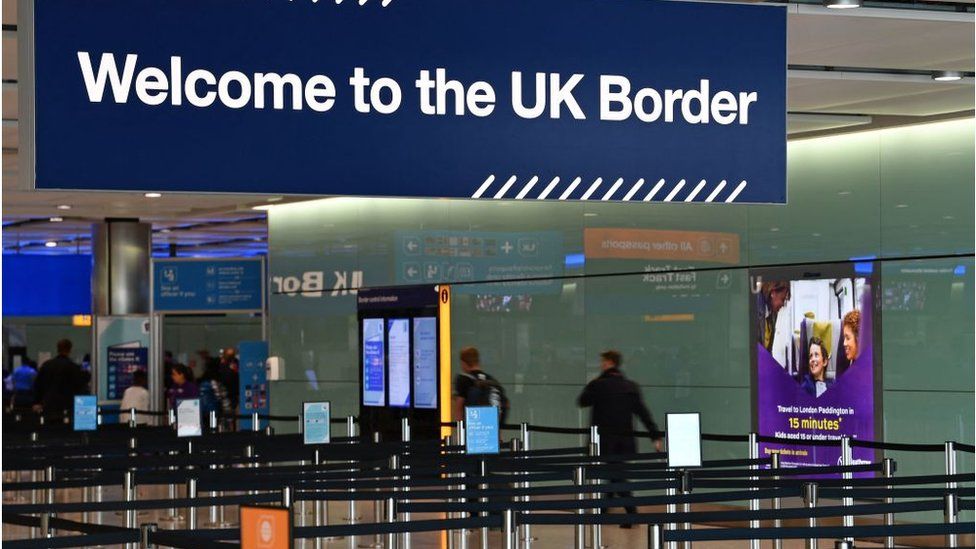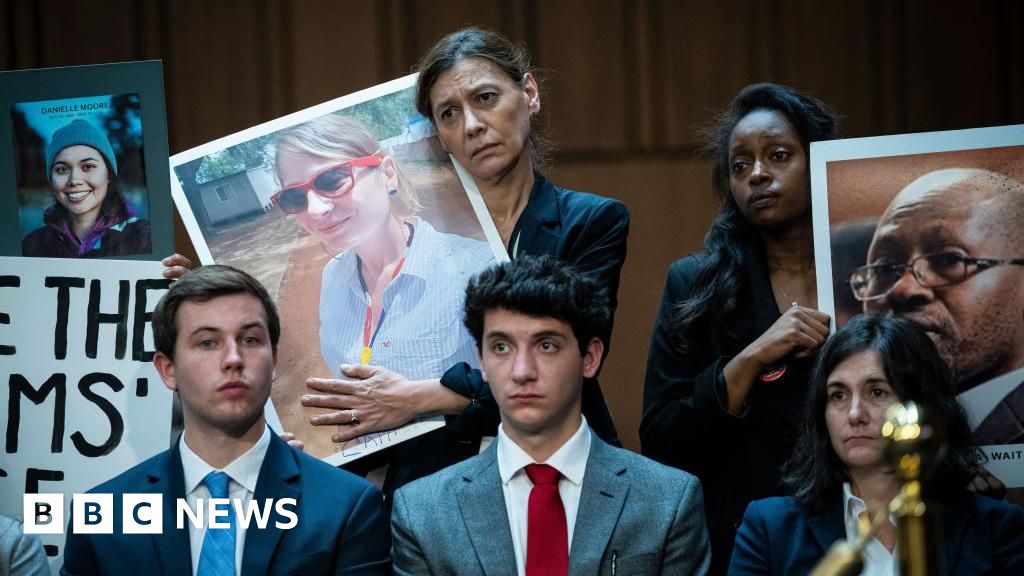ARTICLE AD BOX
 Image source, Getty Images
Image source, Getty Images
By Tom Espiner
Business reporter, BBC News
Hundreds of thousands of travellers arriving in the UK have been told to expect disruption as passport control workers begin strikes.
Border Force staff are the latest UK workers to take action as rises in the cost of living outpace pay.
The military and civil servants have been drafted in at six major airports and at Newhaven port.
Postal workers will also walk out on Friday and national rail strikes start again from Christmas Eve.
About 1,000 Border Force workers, many of whom check people's passports as they arrive in the UK, will strike from 23 to 26 December, and 28 to 31 December.
They will walk out at Heathrow, Gatwick, Manchester, Birmingham, Cardiff and Glasgow airports, and the Port of Newhaven.
Members of the Public and Commercial Services Union (PCS) are in a long-running dispute with the government over pay, jobs, pensions and conditions.
The Home Office said that it had been working to minimise delays for passengers.
Heathrow, the UK's busiest airport, said passengers on departing flights would be unlikely to be delayed - passports are normally checked on the way in to a country.
Passengers who are arriving will be able to use passport e-gates as usual, it said. But these cannot be used by all passengers, including children under 12.
There are 579 flights due to land at Heathrow on Friday, with an estimated 10,000 passengers arriving before 07:00 alone.
This will be the busiest Christmas for airports since 2019, and the first without any coronavirus restrictions in place.
Jasmine O'Donoghue feels anxious about getting home to Jersey from Costa Rica
Jasmine O'Donoghue, 25, has been in Costa Rica since 16 November. She is due to travel to Heathrow and on to Jersey, where she's from, on 27 December, which is not a strike date.
Nevertheless, she has been advised she should change her flight due to the impact of the strikes on domestic transfers.
She said she was feeling anxious around the uncertainty of getting home.
"Right now I don't know if I'm getting on the flight, or will change my flight," she said. "It would be nice for my family and my boyfriend if I was at home for New Year after being away for so long."
Flight volumes
Aviation data firm Cirium said 1,290 flights are scheduled to land at affected airports on Friday, capable of carrying more than a quarter of a million passengers.
Over the period of the strikes, a total of 8,910 flights will arrive, with a capacity of nearly 1.8 million people.
Steve Dann, Border Force chief operating officer, said travellers should be prepared for disruption.
He said the military personnel and civil servants, "many of whom are sacrificing their Christmases", will "not be able to operate with the same efficiency as our permanent workforce".
Paul Charles, chief executive of travel consultancy The PC Agency, said many passengers "are likely to face longer queues and delays during this festive period, and some could find themselves stuck on arriving aircraft before being allowed into the terminals".
PCS general secretary Mark Serwotka said although talks have been held with ministers, pay is never discussed.
"The government could stop these strikes tomorrow if it puts more money on the table," he said.
"Like so many workers, Border Force employees are struggling with the cost of living crisis. They are desperate."
Rail and postal strikes
Arriving airline passengers may also be affected by rail strikes, which are due to run from 23 to 29 December.
Thousands of members of the Rail, Maritime and Transport (RMT) union at Network Rail will strike on Christmas Eve, which will cause train services to stop running at around 1500 GMT on that day.
In addition, Royal Mail workers will strike on 23 and 24 December.
A Royal Mail spokesperson said that over the 48 hours of the strike "we will be doing all we can to deliver Christmas for our customers".
Thousands of employees have stepped in to help sort and deliver mail, and "more than 12,000 posties returned to work on the last strike day", the spokesperson said.
The Royal Mail accused the Communication and Workers Union (CWU) of "a cynical attempt to hold Christmas to ransom".
The CWU in turn said the Royal Mail had turned down a last-minute offer of negotiations and that the Royal Mail's sole intention is to destroy jobs.

 2 years ago
32
2 years ago
32








 English (US) ·
English (US) ·